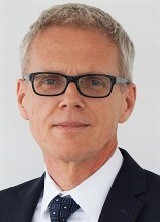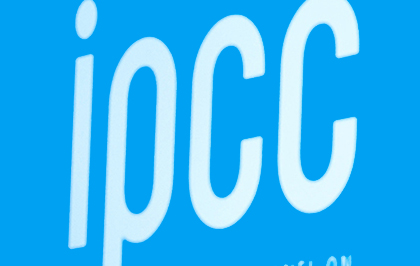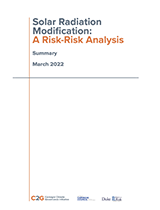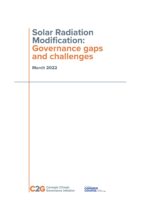Managing the Risks of a Temporary Temperature Overshoot: The Potential Role of Climate-Altering Techniques in Africa’s Just Energy Transition
25 October 2022
Windhoek, Namibia
While the African continent represents 17% of the global population and accounts for only 3.2% of the electricity generated worldwide and 3.4% of the primary energy consumed globally in 2019, African countries remain active members of the global community at the forefront of the climate challenge and are committed to the goals of the Paris Agreement. The Tenth Conference on Climate Change and Development in Africa (CCDA-X) provided a platform for a continent-wide debate on the actions required to bring about a transition that is truly just for Africa to overcome the mutually reinforcing challenges of solving its energy crisis and tackling climate change.
Climate change poses fundamental challenges for Africa’s sustainable development as temperature increases and other hazards put past and future development achievements increasingly at risk. Understanding such risk as well as new risks triggered by climate response measures is therefore central to assessing the pros and cons of any options for responding to climate change.
According to the Intergovernmental Panel on Climate Change (IPCC), risks arise from many responses that are intended to reduce the risks of climate change, including risks from maladaptation and adverse side effects of some emission reduction and carbon removal measures. The IPCC also states that while solar radiation modification (SRM) approaches have the potential to offset warming and ameliorate some hazards, if implemented, it would also introduce new risks, which are not well understood.
Looking at the risks and benefits associated with carbon dioxide removal (CDR) approaches, whether nature-based or technological, can help maintain focus on broader Sustainable Development Goal objectives and provide decision makers support to develop climate policy and governance that is well aligned with their sustainable development plans, while providing an opportunity for Africa to improve livelihoods through a just energy transition that can help the world keep the 1.5C temperature goal within reach.
This side event discussed the risks of a temporary temperature overshoot in the African region and explored the role of CDR in the context of a just energy transition to identify opportunities for sustainable development in Africa that can contribute to improving livelihoods while reducing carbon dioxide concentrations in the atmosphere. The expert speakers looked at the critical role of Africa in shaping discussions around the international governance of SRM as a possible climate response option that could potentially reduce the risks of warming temperature.
Speakers
James Mwangi, Executive Director, Dalberg Group
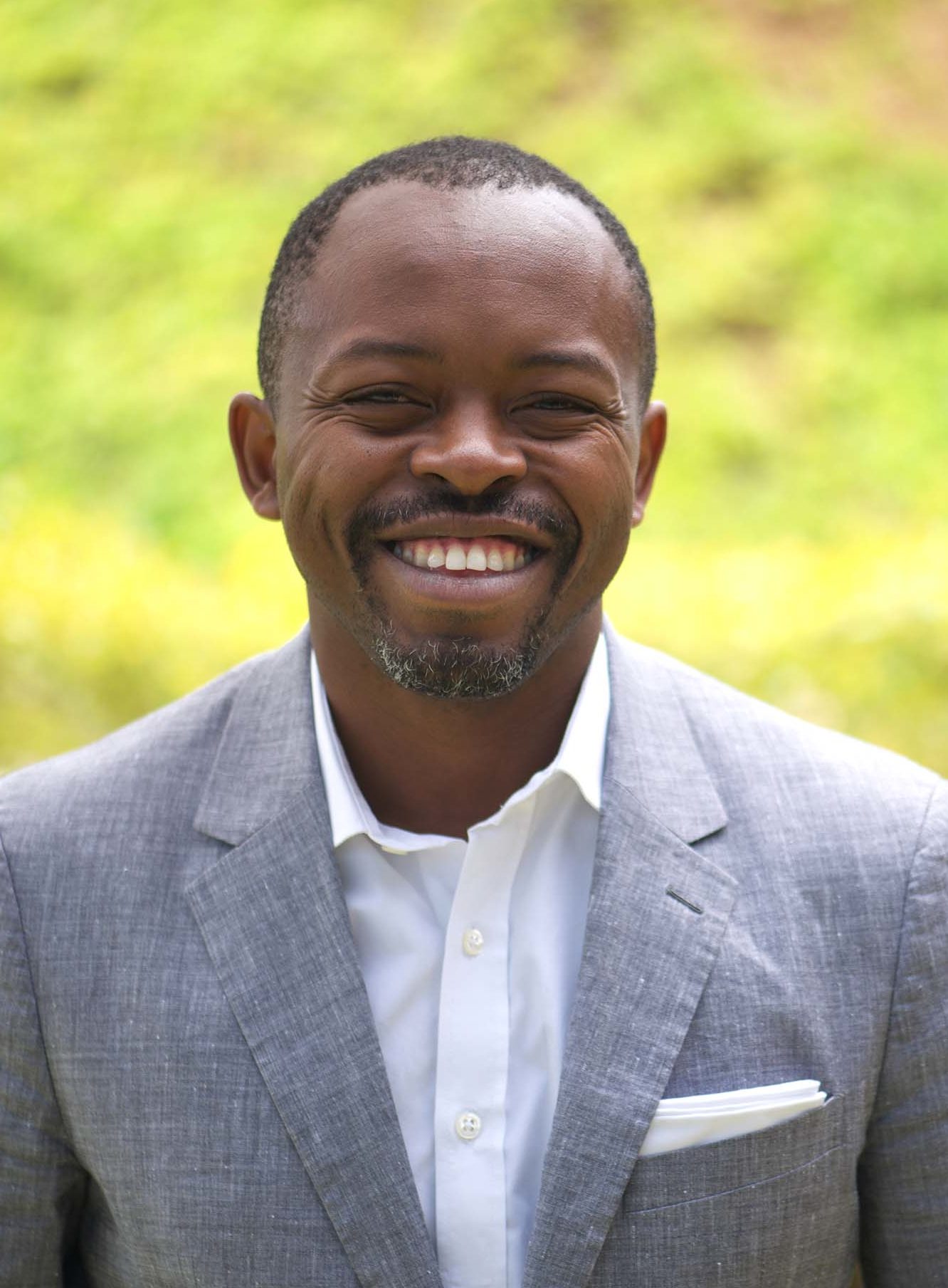
Since 2014, James has served as Executive Director of the Dalberg Group, supporting the growth of new businesses, and coordinating the efforts of all Dalberg entities in pursuit of a shared mission. In that role he has overseen the acquisition or incubation of 6 businesses that are today integral parts of the Dalberg Group operating from locations in 24 countries around the world and employing over 600 professionals.
James is a 2009 Archbishop Tutu Leadership Fellow of the African Leadership Institute, a 2013 Young Global Leader of the World Economic Forum and a member of the Young Presidents Organization. He currently serves on the boards of the Skoll Foundation, One Acre Fund, Old Mutual and the Nairobi International Financial Centre Authority. He holds a degree in economics from Harvard University.
Cheikh Sylla, Director of Cabinet, Ministry of Environment and Sustainable Development of Senegal

Kai-Uwe Barani Schmidt, Senior Programme Director, Carnegie Climate Governance Initiative
Kai-Uwe Barani Schmidt builds on more than 20 years of international and senior level working experience including at the executive office of the secretary-general of the United Nations, at the secretariat to the United Nations Framework Convention on Climate Change, at the World Bank Institute, and independent senior advisory work.
As a senior member of the secretary-general’s Climate Change Support Team, Schmidt contributed to the coordination of the global climate change summit in 2009 and was part of the secretary-general’s team at UNFCCC negotiations in Copenhagen. In the lead-up to and during the landmark Paris climate change agreement in 2015, he led the team’s work on the global climate action agenda, initiated by the secretary-general at his 2014 summit, that mobilized thousands of companies, hundreds of cities, and sub-national authorities in collaboration with governments, the UN, IGOs, and NGOs.
Over the last few years, Schmidt has contributed to the launch of the Initiative for Climate Action Transparency (ICAT). This initiative aims to build a best practice for guidance, tools, and capacity of governments and sub-national authorities to measure the effects of their policies with regard to climate change and the other UN SDGs and report progress publicly, thus fostering greater transparency, effectiveness, and trust, enabling innovative financing and ambition in climate policies worldwide.
Schmidt’s experience has covered public policy design, regulatory design, and implementation of global emissions trading and offset instruments. He has coordinated high-level events, navigating the interface of international negotiations with private sector, intergovernmental, and non-governmental organizations focusing on private sector engagement in climate change and development action at international, national, sub-national, city, and company/NGO levels. In addition, Schmidt’s experience has covered institutional build-up and management of both resources and people.
Thelma Krug, Vice-Chair, Intergovernmental Panel on Climate Change
Thelma Krug is a former researcher at the Earth Observation Coordination at the National Institute for Space Research in Brazil, under the Ministry of Science, Technology, Innovation and Communication (MCTIC).
She was elected Vice-Chair of the Intergovernmental Panel on Climate Change (IPCC) for the Sixth Cycle of Panel (October 2015 – October 2022), after having been co-chair of the IPCC Task Force on National Greenhouse Gas Inventories from 2002 until 2015. She holds a PhD on Spatial Statistics from the University of Sheffield, UK. She has been Deputy National Secretary at the Secretary on Policies and Programs of Science and Technology at MCTIC; National Secretary at the Secretary on Climate Change and Environmental Quality from the Ministry of the Environment (MMA) and Director of the Department on Policies to Combat Deforestation under the Secretary of Climate Change and Forests at MMA.
For more than 15 years she has represented Brazil in the negotiations at the United Nations Framework Convention on Climate Change (UNFCCC), with particular focus on issues related to land use, land-use change and forestry (LULUCF); research and systematic observations; and reporting guidelines. Her main areas of interest are climate change and the role of deforestation, forest degradation and land-use change; REDD+; and national greenhouse gas inventories.
Jean-Paul Adam, Director for Technology, Climate Change and Natural Resources Management, United Nations Economic Commission for Africa
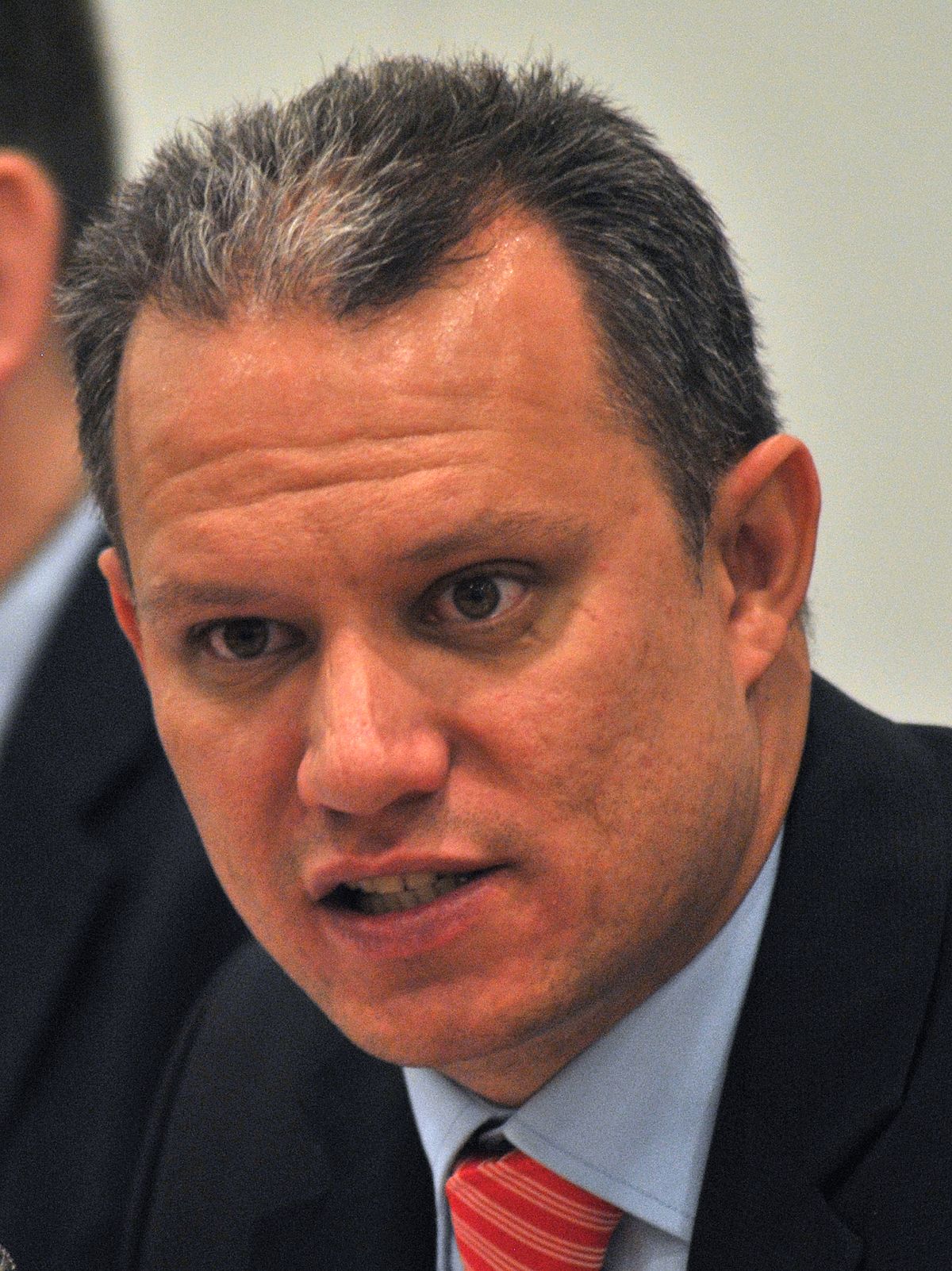
He was Minister of Health from 2016 to 2019. He served as Minister of Finance, Trade and the Blue Economy from 2015 to 2016 where he negotiated a debt for climate change adaptation swap and launched the process for Seychelles to become the first issuer of a Blue Bond. Between 2010 and 2014, he was Seychelles’ Minister of Foreign Affairs, where he advocated for countries to embrace the concept of the Blue Economy, to improve sustainability for island and coastal countries. Before entering the Cabinet, between 2005 and 2009, he occupied several senior roles in the Office of the President of the Republic of Seychelles including Director General for presidential affairs, Principal Secretary for the Office of the President and Secretary of state in the presidency. He started his career as a career diplomat in the Ministry of Foreign Affairs between 2001 and 2004.
He is a holder of a Masters in International Political Economy form the University of Manchester (UK) and a BA in English Literature and French from the University of Sheffield (UK).
